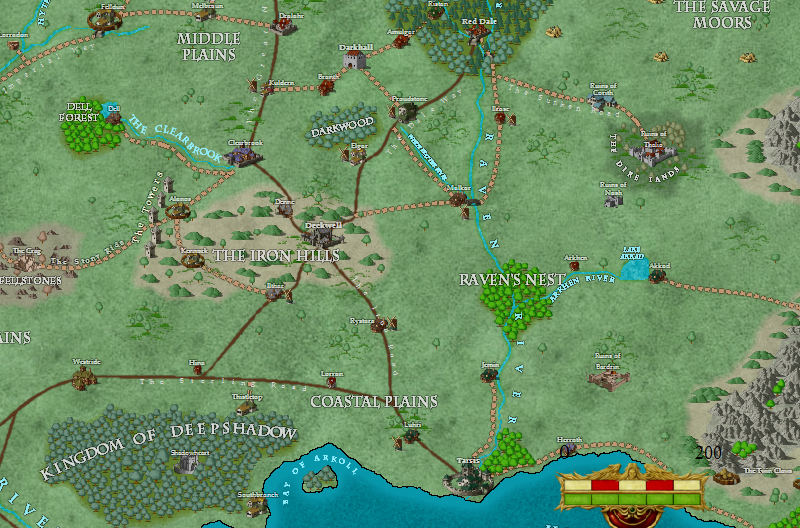Been a While
This is going to be brief. I had a nice personable, friendly toned post with thoughtful stuff on writing process, but this stupid-ass program ate it. “You are navigating away from this page before you’ve posted.” “What? No I’m not. Cancel.” “Fuck you, I’m deleting everything anyway.”
*save draft*
In short, the two extremes of process are Type 1: “plan nothing, write stream of consciousness babble” and Type 2: “plan everything, succumbing to paralysis and almost never finishing.” They both suck. Here’s what I do, in parts.
World Building
Verisimilitude is important to me. I think stories and worlds that make no sense are stupid, so I try hard not to be like that. I use a sub-process called “facts and implications” I picked up doing geopolitical analysis back in the day.
*save draft*
For instance, the presence of a river has implications regarding trade, the ease of civilization with an abundance of food and water, the cultural effects of flooding, and the cosmopolitanism that results from more foreign travel and exchange of goods.
The presence of mountains implies barriers between regions, an arid side and a rainy side, cultural isolation for the mountain-dwellers, unique species of animals, and so on.
The existence of a monotheistic faith carries social and spiritual implications, just as syncretic polytheistic practices and beliefs do.
And so on. Every implication you logically draw from a given fact helps build out the world and ensures that it makes sense. Likewise, contradicting logical implications must be explained or that element of your story will not make sense.
*save draft*
Obviously, this part of my process is like Type 2. It resists paralysis because there is a finite number of implications to be drawn from any fact, and you inherently don’t bother with facts that are irrelevant; ergo all your work is relevant. And since virtually none of it addresses individual characters or plot elements, you don’t suck the creativity out of that part. Instead, you’re building out your world, which is supposed to be mostly static anyway.
PLOTTING
Plots must be planned, even if only loosely. But you really fundamentally only need to know the beginning, the end, and a handful of meaningful points in the middle. I call these “milestones.”
Example: If your book is about a farmer boy discovering a magic weapon and using it to defeat the tyrannical lich king, then you need to know the farm boy’s origins, that he defeats the lich king, how he got the weapon, and roughly how he gets to wherever the lich king’s source of power is. Everything else is negotiable; secondary characters, additional plot items, reveals and mysteries, characterization, why the lich king is tyrannical, what kind of weapon it is, and so on.
*save draft*
Beyond those big milestones, I write synopses of each part of the story as if it were a badly told tale by a drunk; loose, easy, and fuzzy on the details.
Example: Chapter 1 – ‘Piggy the farm boy is a good lad who always does what he’s told. One day he’s out watching the sheep like his dad said when a strange man approaches on a horse. Piggy is suspicious and readies his crook for trouble, but the man collapses. He’s wounded. He gives Piggy a heavy bundle and begs him to take it to a nearby hero; and he names Piggy’s father, Porker! Then he dies. Piggy takes the horse back home, leaving the sheep. Porker dresses him down for abandoning the flock, but becomes very serious when Piggy explains. He tells Piggy to go throw it down the well outside. Piggy goes to obey, confused, when a troop of the lich king’s soldiers arrives; they tracked the horse. Piggy hides behind the well. They go the house and search it, confronting Porker. They they spread out to search the rest of the farm. Porker sees Piggy hiding behind the well with the weapon and tries to distract them. They stab him and set the farm on fire and leave. Piggy rushes to Porker, who is dying. Porker tells him he comes from a line of noble heroes who had to go into hiding when the lich king took power, and the weapon is a magical hereditary item. He wanted Piggy to destroy it because he thinks resistance is useless, but he’s dying and it’s not his decision anymore. It’s Piggy’s.’
*save draft*
This is a form of Type 1 stream-of-consciousness writing. It’s more useful and less self-destructively stupid than pure Type 1 because it’s naturally bound by the edges of a chapter. It can’t go on too long before it becomes ponderous and rambling; whenever that happens I trim it down or split the content over two chapters. And whatever synopses I make are subject to revision both 1) because they’re just not that detailed, and 2) they’re intended only as a guide. What about the rest of Piggy and Porker’s family? Is this is a simple origin story in high fantasy, with archetypes and clear good/evil lines? How low level should it get with regard to dialogue, details of the farm, and family interactions? How dark will this story be? A deathbed quest given by secret disillusioned hero father is going to be different in theme and character from an anti-hero revenge tale motivated by rape, torture, and murder. All of this is subject to change as you go.
My worldbuilding technique and plotting technique. Oh the secrets I share with those few anointed who read this page. That’s enough for tonight, especially since I had to type most of this twice.

 Previous Post
Previous Post Next Post
Next Post


